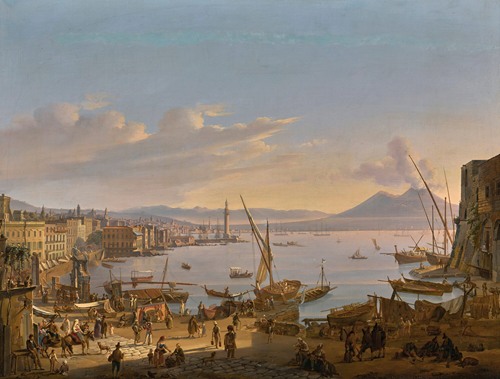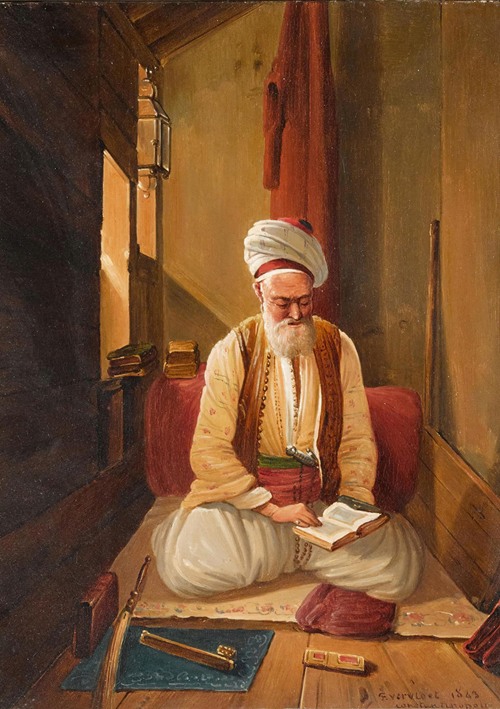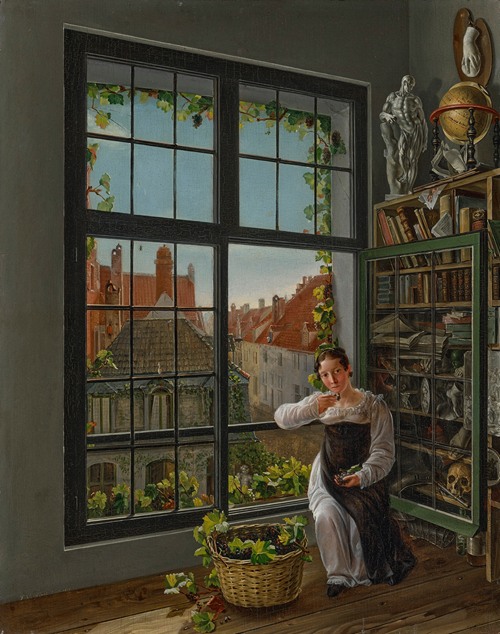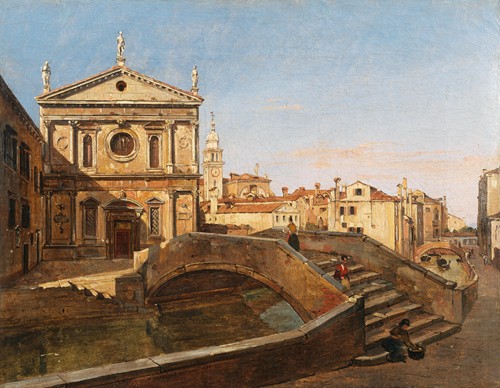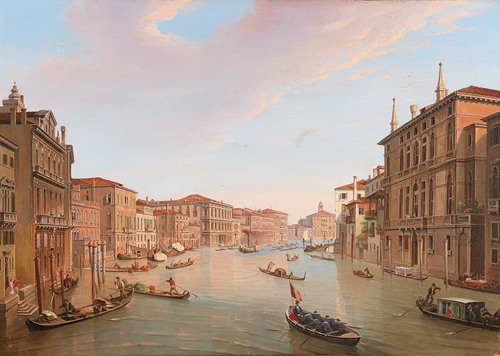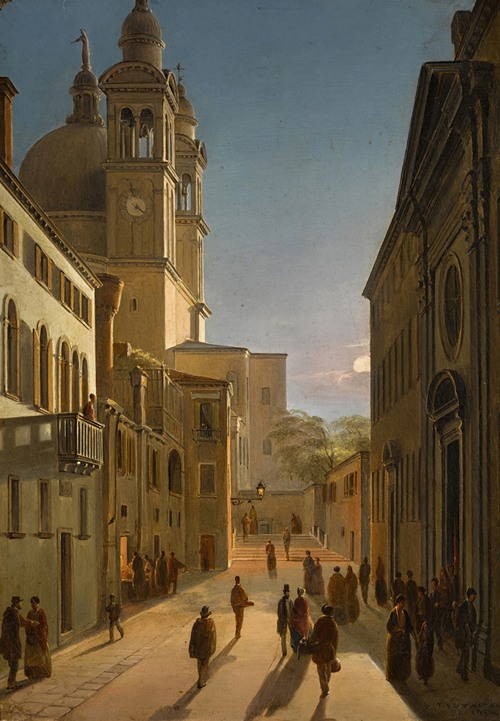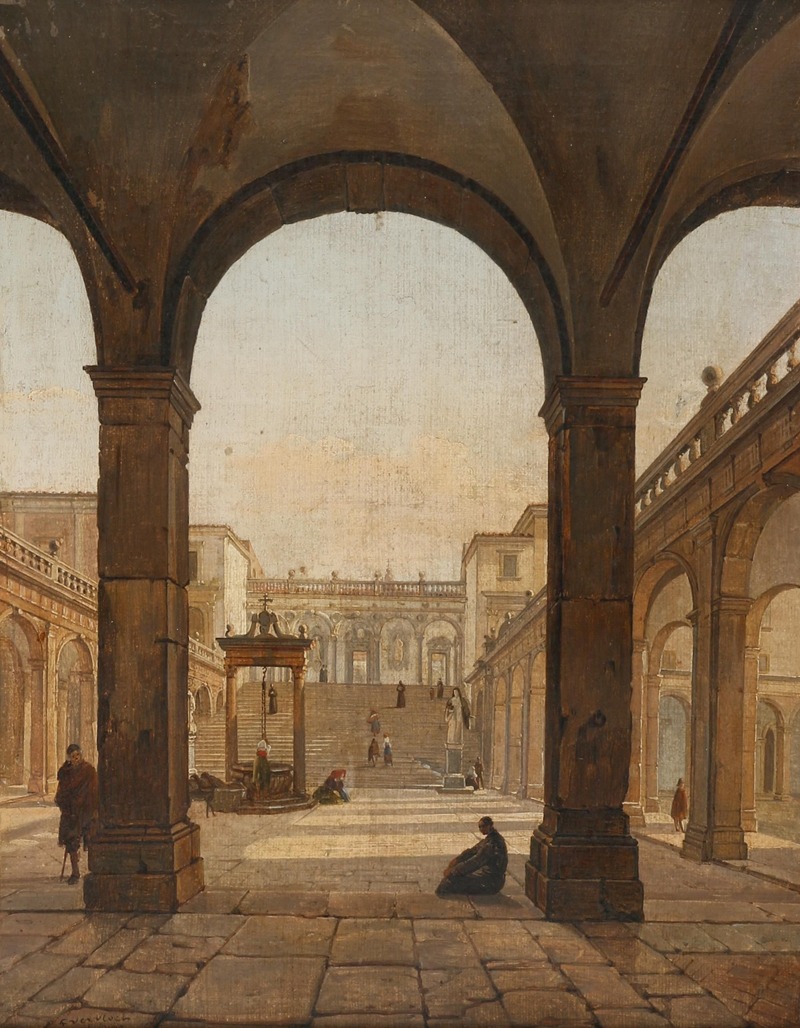
Frans Vervloet was a Belgian painter and printmaker. In 1809 he began to study at the Akademie voor Schone Kunsten in Mechelen and was also given instruction by his brother J. J. Vervloet (1790-1869), a genre and portrait painter. During this early period he produced both genre pieces and copies after Old Masters (including Peter Paul Rubens), although he concentrated mostly on architectural painting, for example the Installation of Archbishop François Antoine de Méan at Mechelen. Following the great success of this painting, he devoted himself from 1817 to paintings of church interiors.
In 1822, he was awarded a scholarship to study in Italy where he developed a greater interest in landscape painting and where he eventually spent much of his career. After two years in Rome, Vervloet travelled to Naples in 1824. There he was greatly influenced by the group of painters of the Posillippo School whose members, in their reaction against the more academic approach of late 18th century landscape painting, favoured a more spontaneous approach, with an emphasis on plein-air painting.
Vervloet eventually settled permanently in Venice in 1854.
More Artworks by Frans Vervloet

